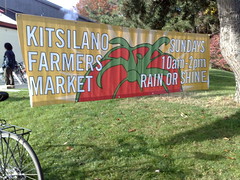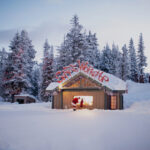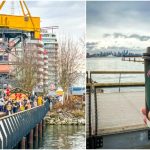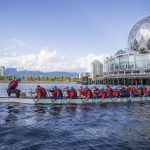100 Mile Challenge in Mission, BC
Based on the best-selling book (and blog) by James MacKinnon and Alisa Smith, the Food Network’s new series, The 100 Mile Challenge, is testing the lifestyle habits of families in Mission, BC. I recently did a write up about the show for E!Online and soon after started counting my own food miles.
“The production of food has gone crazy in our world,” noted Smith in the series opener that aired Sunday, April 5th. “I mean you’re getting strawberries from California when there are strawberries you can grow in your backyard, lettuce from China and you can grow lettuce in your backyard. That’s a really redundant impact on the environment.”
The “100 Mile” concept involves only consuming food that was grown, harvested, or produced within 100 miles of your home. This cuts back on environmental impacts from things like packaging and shipping, while also helps you explore local business. They call it the “100 Mile Diet” although it’s more like a movement.
For the documentary-style TV show, MacKinnon and Smith head to Mission, BC to enlist community members in the challenge and the series then follows six families closely for the 100 days of the challenge. Things the Mission families can’t eat during the 100 Mile Challenge include coffee, rice, tropical fruit, avocado, soda, beer, olive oil, sugar, peanut butter, and basics like black pepper and salt.
Local markets are praised as being excellent resources not only for locally-grown food but also for inspiration, recipes, and community support and discussion.
Markets in the Vancouver Area
The 100 Mile Challenge television show will air Sundays until May 10th, following all 100 days of the challenge in Mission, BC.












9 Comments — Comments Are Closed
This is a fun challenge to try.
You will find that you will need to eat when things are in season locally instead of when you want them like you may be used to.
I watched an episode of the show last night and while I like the general concept, I think the sustainability benefits of the challenge are negated by some of the extremes the participants go to in order to get certain foods.
For example, one of the women drove her car (and she was the only passenger!) 200km round trip in order to find chicory root. Another family used a heck of a lot of energy boiling salt water on their stove in order to get salt.
+1 on what Karen said. Some of the extremes to which families go to in order to actually try to comply with the 100 Mile diet are just ridiculous. I personally don’t pay attention to it, and while I have written about the issue (during Blogathon 2007) I don’t really believe in the environmental benefits.
I’m a specialist in environmental issues, I do environmental research and I have very strong environmental values. But I completely disagree with extremes (deep ecology being just but one example). The 100 Mile Diet is an example of things taken to an extreme. Like with Earth Hour Canada, I recognize and value the idea of showcasing something and making it more visible, but the overall environmental impacts are negated.
I go to the UBC Farm Market every Saturday in the summer…so yummy! http://www.landfood.ubc.ca/ubcfarm/market_garden.php
A few richmondmites 2 or 3 years ago did a 10 mile challenge for the whole summer (if I remember right). In the interview with one of the local papers, most of the people who did the stock up on food before the challenge but it was also an eye opener on how much food that’s imported.
Like do we really need mexico strawberries in the middle of winter?
Personally I’ve grew up eating local fruit and veggies when they are in season and local fish/meat. Yet I drive myself everywhere since local transit doesn’t work for me.
The Riley Park market is being moved to Thornton Park this summer (the one beside the Main Street SkyTrain and mentioned in your post about Where’s The Square).
I’m sure glad the two that wrote the book have nothing better to do than prepare meals and search for the minimal products available locally. We don’t all live in places where there is a long growing season (30 days without frost is a pretty good year here). Nice to see that they’ve also taken into account the global economy of food trade. Where would the coffee growers be financially if all of North America and Europe stopped drinking coffee? Food (and other products) trade has been part of human existence for nearly as long as humans have existed, and to automatically assume that everyone eating locally will not effect the whole trade system is naive and irresponsible. May the cosmos reward their preaching.
The principles are great, while anything taken to extremes tends to negate positive outcomes it is a good trend to start. someone brought up the coffee scenario….the next most positive scenario would not be to stop drinking coffee, but to buy from a local roaster…the coffee will be fresher and many micro roasters like myself sell at local farmers markets.
Another point to consider is the economic benefit of local buying. Produce and items produced local will contribut/spinoff 5 times their value into the local economy so a $10 purchse is the equivilant of $100 in the community. Versus about 2 times the value for produce from out of the area.
I think the 100 mile theory is great, but not sustainable. I am a farmer, dairy, in Ontario, and do buy as much as I can from local producers. But when something like ice cream, that is made with Canadian milk, and produced 20 minutes from my house, cannot be considered local since some ingredients are not able to be sourced in Ontario, let alone Canada I think that is going too far. I think there is a happy medium in what they are doing in this challenge and what we can practically do for the long term. I do find it very intersting to watch though.